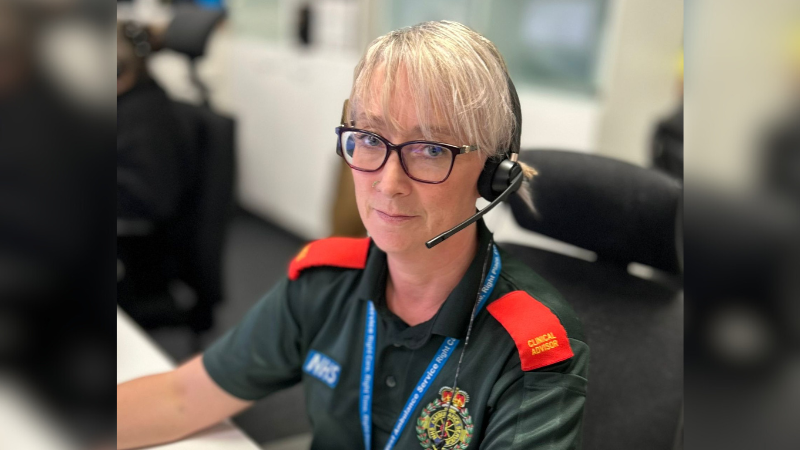
NHS 111 call handlers receive abusive calls daily. In the past six months alone, there have been 192 reported incidents of verbal abuse toward NHS 111 staff. This equates to an average of 32 incidents per month— at least one every single day. And these figures don’t include the abuse faced by staff in our 999 call centres, frontline emergency workers, or the many incidents that go unreported.
This winter, we are taking a stand against violence and aggression towards our staff and have launched a campaign that uncovers the shocking and disturbing verbal abuse our call handlers face.
Kate Gregson, Clinical Advisor, has worked for our NHS 111 service for the past two and a half years. She loves her job but says there is a darker side to being a call handler that is very difficult. As a clinical advisor, Kate will manage calls that require a clinical assessment. She tells us, “I work unsocial hours, so that’s mainly working nights, and I think sometimes at nighttime that’s when we seem to get more abusive calls. Whether it’s because people have been drinking or have just had more time in the day to mull things over and get frustrated.”
Kate recalls one call that left a lasting impact. She said, “This particular call changed so quickly. It was literally like a light switch turning on. I had a little bit of preparation in that I knew it had been a difficult call for the health advisor who had previously spoken to them, but I don’t think they had been abusive towards them. When I spoke to the caller we talked for a fair amount of time, got disconnected once, then reconnected and carried on talking and it was all going fine. And then I asked a simple question, one that we ask every patient on every call, and they changed in an instant. The things that were said were absolutely horrendous and that does really strike you. Why would anyone even think to say, “I hope you get raped.” I was thinking about that call all night and all the drive home that night and the next day. It was quite horrible.”
Sadly, this kind of abuse is all too common for call handlers. Kate believes that speaking over the phone emboldens people to behave in ways they wouldn’t face-to-face. “When it’s over the phone, people feel like they can say anything. It’s as if they think there are no consequences” she adds.
Kate urges people to remember that emergency workers are human too. “We’re members of the public just like them. We have our own health and family worries, and many of us are dealing with personal challenges.
“We come to work because we genuinely want to help people. No one chooses this job for the unsociable hours or to give up Christmas and family celebrations. We do it because we care.”
Both our NHS 111 and 999 call centres have procedures in place to handle abusive calls. Call handlers can issue two warnings and, if the abuse continues, terminate the call. There’s also a standard process for reporting incidents of violence and aggression.
Natalie Samuels, Head of Violence Prevention Reduction and Security and former detective, understands the importance of reporting abusive incidents. She said, “Unfortunately, many incidents go unreported. Staff often feel that verbal abuse won’t lead to consequences—but this isn’t true. Reporting abuse is crucial for holding offenders accountable and driving change. By highlighting the harsh realities our staff face, we aim to raise awareness of the abuse and empower staff to report every incident, whether verbal or physical. It’s only by calling out abusive behaviour and ensuring individuals are held accountable that we can create real change.”